JOIN NOW
Learn more about Member Benefits

Jill Hawks, MS, CCC-SLP is the owner of Alpine Speech Therapy, a pediatric private practice based out of Denver, Colorado. Born and raised in rural Colorado, she pursued higher education across the border at the University of Wyoming. Jill earned both her Bachelor of Science in Speech-Language and Hearing Sciences and Master of Science in Speech-Language Pathology at UW and started her career in a developmental preschool and early intervention program based in Cheyenne, WY. Jill made her way back to Colorado, continuing to gain experience in different settings including private practice, public schools and intensive therapy mountain and day camps. Jill brings her experiences from multiple settings, communities, and transdisciplinary teams to her own private practice now providing in-home, community-based and teletherapy services to families in the Denver metro area. Jill also has experience contracting with a rural Colorado school district that included providing teletherapy services and supervision of a speech-language pathology assistant (SLPA). Jill was appointed as the CSHA State Advocate for Reimbursement (STAR) in 2024, CSHA President-Elect for 2025 and is the current CSHA President for 2026. She looks forward to fostering strong connections that create a unified and effective network of representation across Colorado. Passionate about serving the state’s diverse communities—from rural mountain towns and the metro Front Range to the eastern plains—Jill brings a deep understanding that every region has distinct needs. This perspective drives her continued advocacy for high-quality services and meaningful support for all Coloradans.
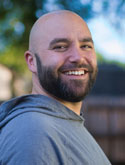
William Thomson is a practicing Pediatric Home Health Speech-Language Pathologist at Front Range Pediatric Therapies. He earned his B.A. in Linguistics from Oakland University, completed post-baccalaureate work in Communication Sciences and Disorders at Wayne State University, and earned his M.A. in Communicative Sciences and Disorders from Michigan State University. William has a wide variety of experience, spanning multiple disciplines in the healthcare industry, as well as multiple Speech-Language Pathology settings, including schools, ICU, inpatient hospital, outpatient hospital, pediatric outpatient, and pediatric home health. As a Speech-Language Pathologist, his areas of special interest include Childhood Apraxia of Speech, Fluency, Augmentative Alternative Communication, Social Language Disorders, and Speech Sound Disorders.
He values the opportunities he has to learn from peers, patients, families, community partners, and mentors throughout the state. During his time on the board as President Elect and Vice President of Education, he would like to develop stronger connections with state associations, Colorado SLPs and Audiologists, graduate students, and community partners who have the potential to further our fields of Audiology and Speech-Language Pathology, while increasing educational opportunities for all health professionals. In his personal life, Will also enjoys racing cars, hiking, climbing, board games, camping, nerding out, traveling, and eating any cuisine.
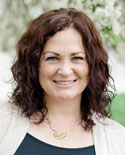

William Thomson is a practicing Pediatric Home Health Speech-Language Pathologist at Front Range Pediatric Therapies. He earned his B.A. in Linguistics from Oakland University, completed post-baccalaureate work in Communication Sciences and Disorders at Wayne State University, and earned his M.A. in Communicative Sciences and Disorders from Michigan State University. William has a wide variety of experience, spanning multiple disciplines in the healthcare industry, as well as multiple Speech-Language Pathology settings, including schools, ICU, inpatient hospital, outpatient hospital, pediatric outpatient, and pediatric home health. As a Speech-Language Pathologist, his areas of special interest include Childhood Apraxia of Speech, Fluency, Augmentative Alternative Communication, Social Language Disorders, and Speech Sound Disorders.
He values the opportunities he has to learn from peers, patients, families, community partners, and mentors throughout the state. During his time on the board as President Elect and Vice President of Education, he would like to develop stronger connections with state associations, Colorado SLPs and Audiologists, graduate students, and community partners who have the potential to further our fields of Audiology and Speech-Language Pathology, while increasing educational opportunities for all health professionals. In his personal life, Will also enjoys racing cars, hiking, climbing, board games, camping, nerding out, traveling, and eating any cuisine.
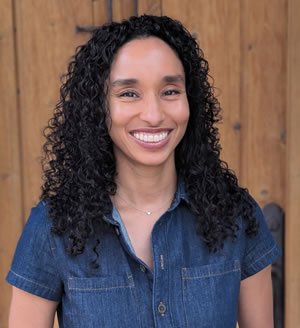
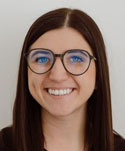
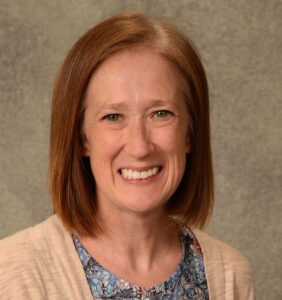
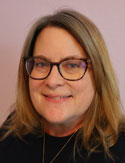


She is excited to be a new member of the CSHA Board of Directors to support and give back to the profession and to continue to grow as a therapist.
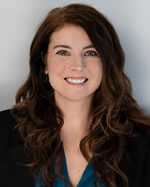
Caeli Romansky is a speech-language pathologist going on 15 years in the field, and is currently a part-time private practice owner and part-time school SLP. She loves the variety our field allows for us to have, as well as the curiosity and compassion that is inherent in those that end up doing this job. Caeli lives in Westminster with her husband and their very adorable dog, Crater. She love live music, yoga, and doing all the outdoor things. Caeli excited to be in this role, helping to grow our therapy community and advocacy in Colorado!

Jennie Bjorem is a highly respected pediatric speech-language pathologist with over 25 years of experience and a recognized international expert in Childhood Apraxia of Speech (CAS). As the founder and CEO of Bjorem Speech® Publications, she leads a dynamic team dedicated to creating inclusive, evidence-based therapy materials that help children feel seen, supported, and successful. Jennie is also the President of the Bjorem & Bolles Apraxia Education Initiative, a 501(c)(3) nonprofit and training center based in Parker, Colorado. This groundbreaking initiative is focused on equipping speech-language pathologists with the tools and confidence needed to assess, diagnose, and treat CAS through accessible, hands-on education. An engaging and sought-after public speaker, Jennie delivers impactful presentations across the U.S. and internationally. Her trainings are known for their practicality, interactivity, and deep clinical insight, always rooted in current research and her own real-world experience. Jennie maintains a small caseload of children with CAS, ensuring her work remains grounded in the day-to-day realities families face. With a passion for innovation, inclusivity, and professional collaboration, Jennie continues to push the field forward, bringing fresh ideas, joyful learning, and a deep commitment to every child’s communication journey.

Danielle Castle, SLPD, CCC-SLP, is a speech-language pathologist with 15+ years of experience across early intervention, school-based, and private practice settings. Originally from New York, she earned her Bachelor of Arts and Master of Science in Communication Disorders from SUNY New Paltz and later completed her Doctorate in Speech-Language Pathology at Rocky Mountain University of Health Professions in Provo, Utah. Her doctoral research focused on coaching and adult learning principles in early intervention.
Danielle has worked in the San Francisco Bay Area, Manhattan, and the Colorado metro area, where she has practiced since 2016. Her clinical interests include supporting children with childhood apraxia of speech and autism, with a strong emphasis on family-centered, individualized care. She believes that everyone deserves a voice and finds the field both challenging and deeply rewarding.
As an active member of the Colorado Speech Hearing Association, Danielle is committed to advocating for access to high-quality speech therapy services across Colorado. She is especially passionate about growing our workforce of SLPs and improving equitable access to care for families in both rural and metro communities.
Outside of work, Danielle enjoys playing ice hockey, visiting family in New York, and spending time with her husband and dogs while exploring Colorado’s great outdoors.

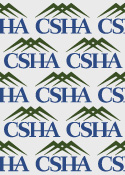



Brigid Mitchel is the student liaison from CU Boulder, originally from the Western Slope of CO. After living in Brooklyn, NY for 13 years, she returned to Colorado to make a career transition to speech pathology. Her first career was in nonprofit leadership and advocacy. Her new career will allow her to have a hands-on impact every day.
Brigid is a vocalist with a Bachelor of Music in vocal performance from CU Boulder. As an SLP, Brigid is interested in interdisciplinary collaboration, language disorders, voice, and pediatric populations.
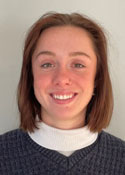
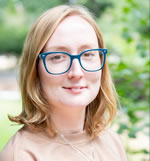
Nikola Skurzok is a graduate student of Speech-Language Pathology at MSU Denver. She is very excited to be included within CSHA to support the right to communication for everyone. Augmentative and Alternative communication (AAC) is Nicola main interest when it comes to improvement of accessibility through technology, but she thinks it is the environment that needs to improve in inclusion and acceptance.
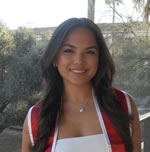
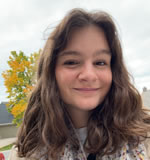
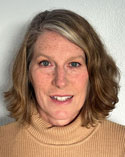
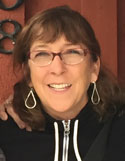
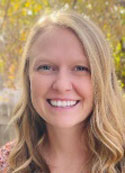

Board of Director (BOD) members are elected for a two-year term with the exception of the President who serves a three-year term.
BOD membership is open to all CSHA members (SLP, AUD; can be new members); no previous Board service is required for most offices, however, a candidate for President must have served on the board for at least one year. Benefits of BOD membership/participation include:
The BOD meets meets through phone conferencing every month. There may be a few live meetings during the year at discretion of the president. Each term consists of the first year in the Elect position where the primary duties involve assisting the current office holder and the second year as the primary office holder. The President also remains on the Board as Past President for an additional year.
*Note: This position works closely with the CSHA Office
The student liaisons are graduate students from each of the three universities in Colorado with programs in speech, language and hearing sciences.
State Education Advocacy Leaders (SEAL)
State Education Advocacy Leaders (SEALs) are appointed by ASHA recognized state speech-language hearing associations to advocate on education issues. These issues may include caseload/workload, salary supplements, and maintenance of personnel standards in school settings. SEALs can be speech-language pathologists or audiologists. The State Education Advocacy Leaders were established in 1999 under ASHA’s Priorities. The mission of the SEALs network is to enhance and perpetuate the advocacy, leadership, and clinical management skills of school-based ASHA members at the state and local levels to influence administrative and public policy decisions that affect the delivery of speech-language pathology and audiology services in school settings.
State Advocates for Medicare Policy (StAMP)
StAMP participants are appointed by ASHA recognized state speech-language-hearing associations. They advocate for Medicare coverage and reimbursement of audiology and speech-language pathology services in the states.
The StAMP representative is responsible for establishing or enhancing effective links to medical directors, consultants, and key personnel with
State-Based Reimbursement Network (STARS)
The State Advocates for Reimbursement (STARs) are ASHA-member audiologists and speech-language pathologists who advocate in their states for improved health care coverage and reasonable reimbursement. Their targets are key decision-makers in private corporations, public agencies, and the local legislature. Examples are health care insurance executives, benefits administrators, state insurance department officials, and state congress members. STARs create advocacy strategies and share skills with the state speech-language-hearing associations that appoint them.
STARs form a true network. They link states together and to ASHA through monthly conference calls, a STARs-only e-mail discussion group, and periodic meetings. STARs are individuals who:
